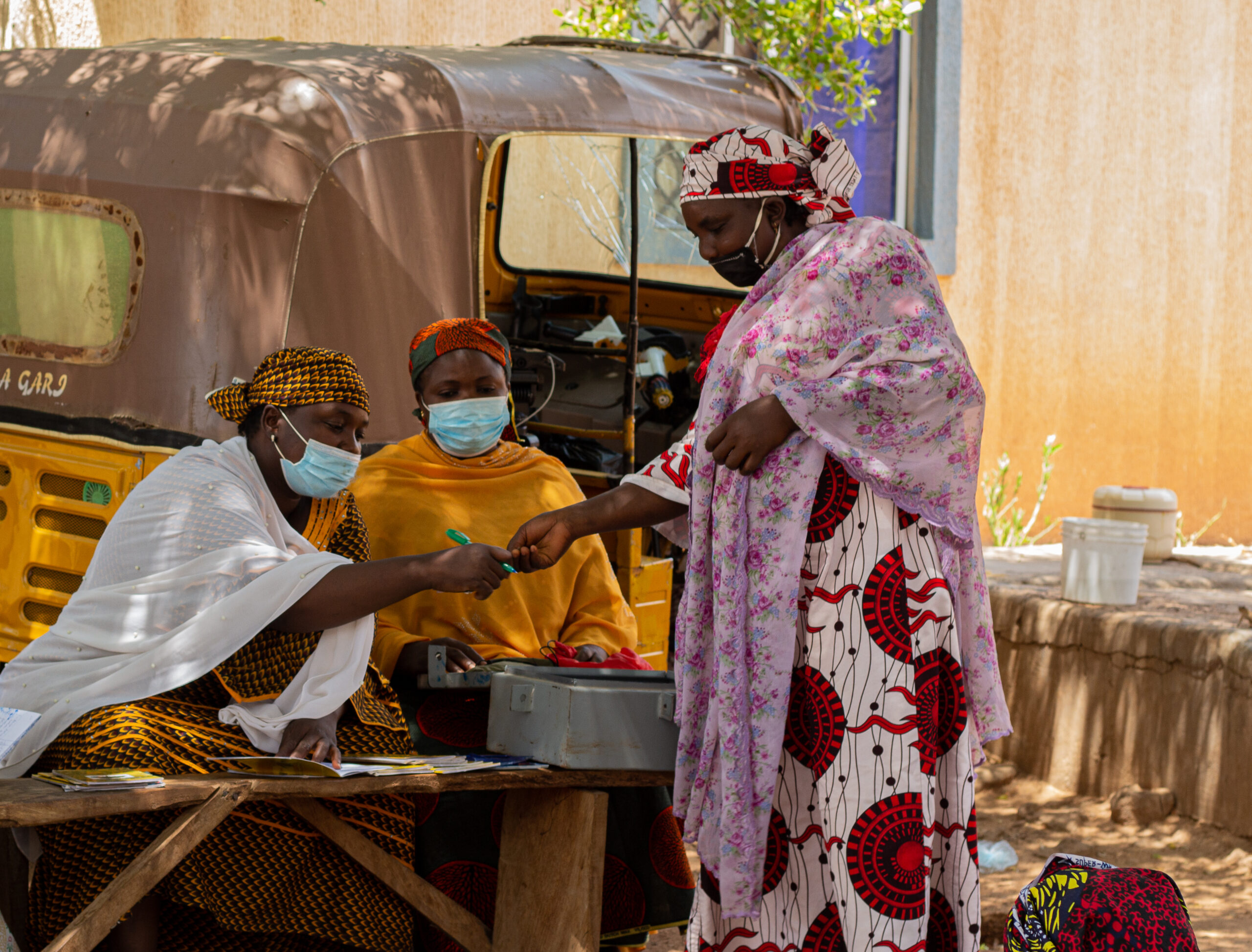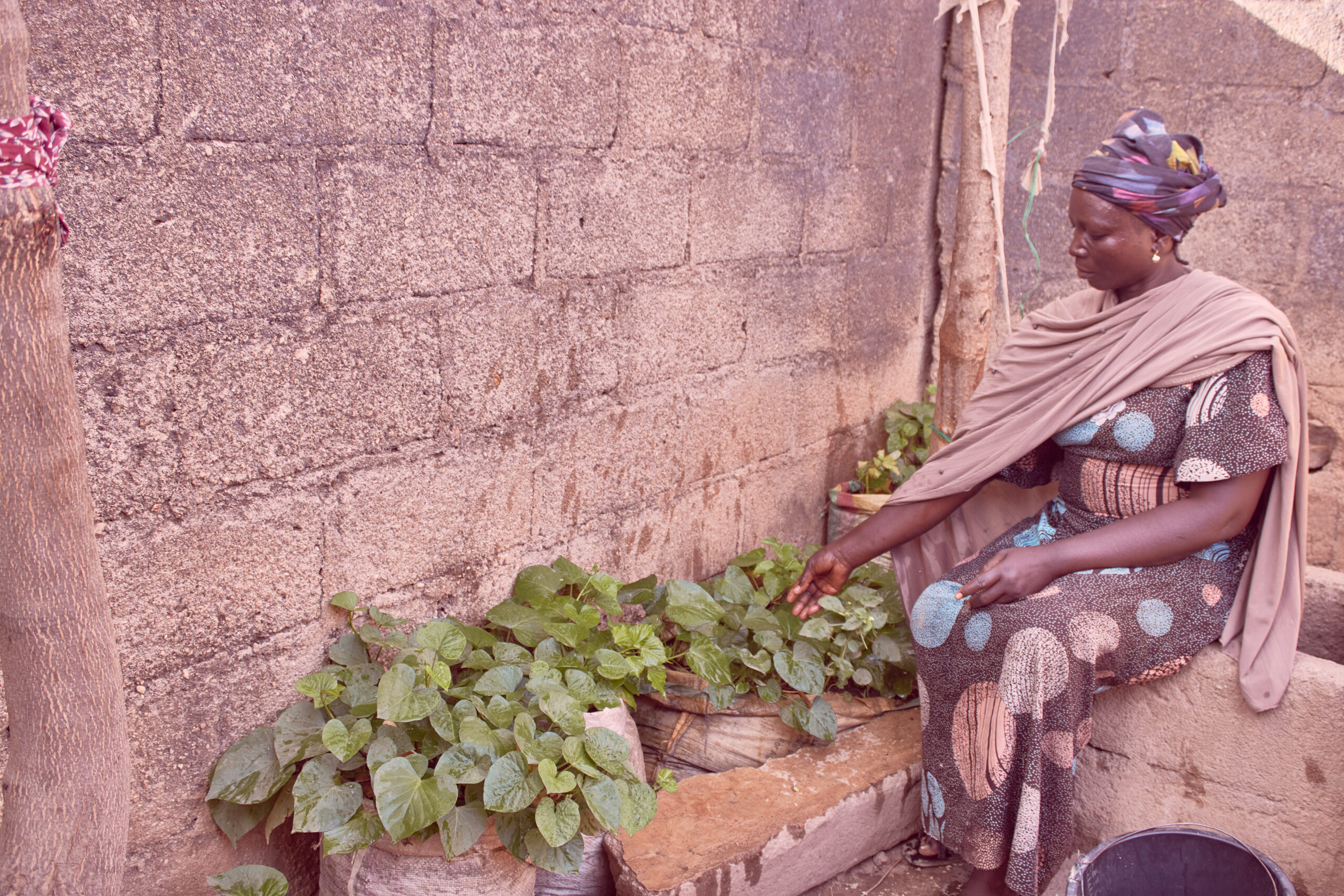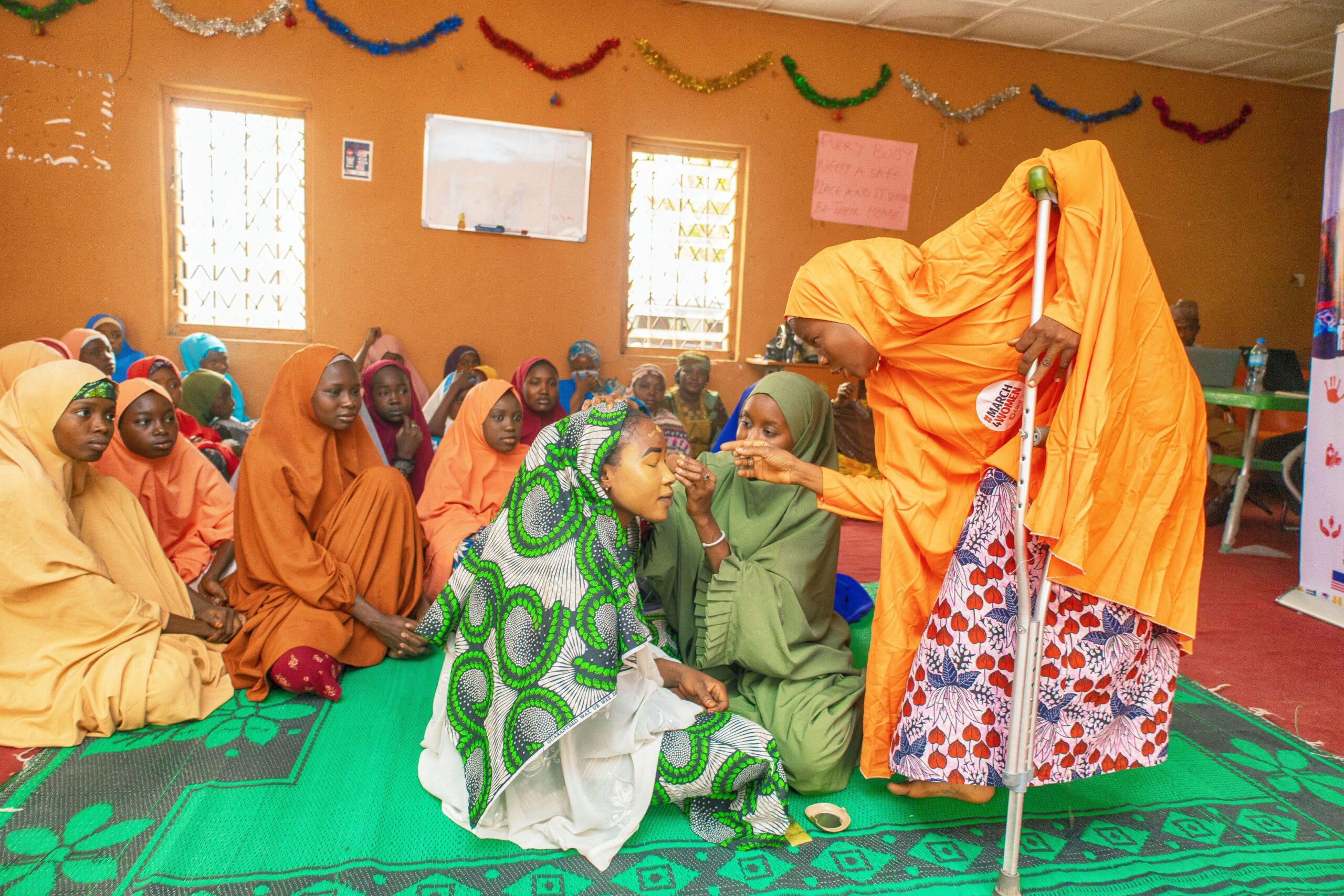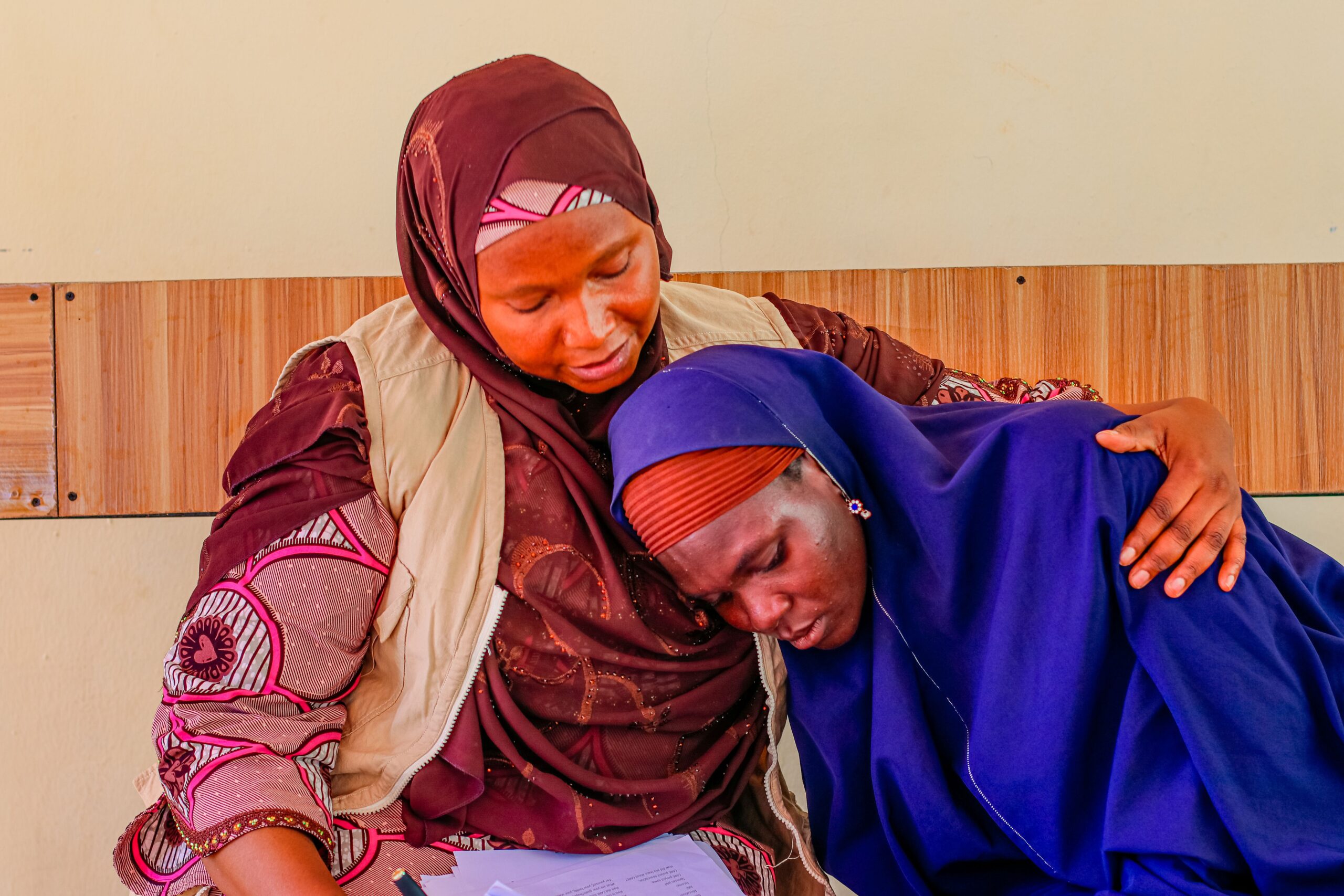Zara Saleh, a middle-aged IDP, and a mother of five, has been a recipient of WFP’s food assistance program for over four years now. For her, the transition from monthly distribution of dry food rations to choice-based voucher redemptions has been the most empowering aspect of her stay in the IDP camp.
“When the PMCs came to tell us about the change, I really did not understand. It was our first time going to a shop, giving them a card and leaving with food items. I thought we were to collect the same items we were given before, which were sorghum, beans, oil and salt.”
Zara later learnt about her freedom to purchase the commodities she preferred from a focused group discussion.
“When I understood that I could purchase whatever my family needed, I started to plan more with my husband. We will sit for a long, discussing what we would eat for the month and how we will utilize the little money he earns from his daily labors to add to our food budget. We had to ask about the prices of the commodities and the prices of firewood. Now, other women come to ask me about food prices because they know I and my husband always ask about prices, and we sit down to compare. Me and my husband are closer now. This is one of the things I liked about the change from the normal distribution to the voucher redemption.”
Zara and her family became refugees in neighboring Cameroon and, eventually, IDPs in the Ngala ISS Camp when insurgents attacked their village six years ago. Zara’s experience has been so traumatic that she is unable and unwilling to recount her experience while fleeing from the violence.
Zara now recounts her life-changing experience and says she now plays a part in the decision-making in her household.




